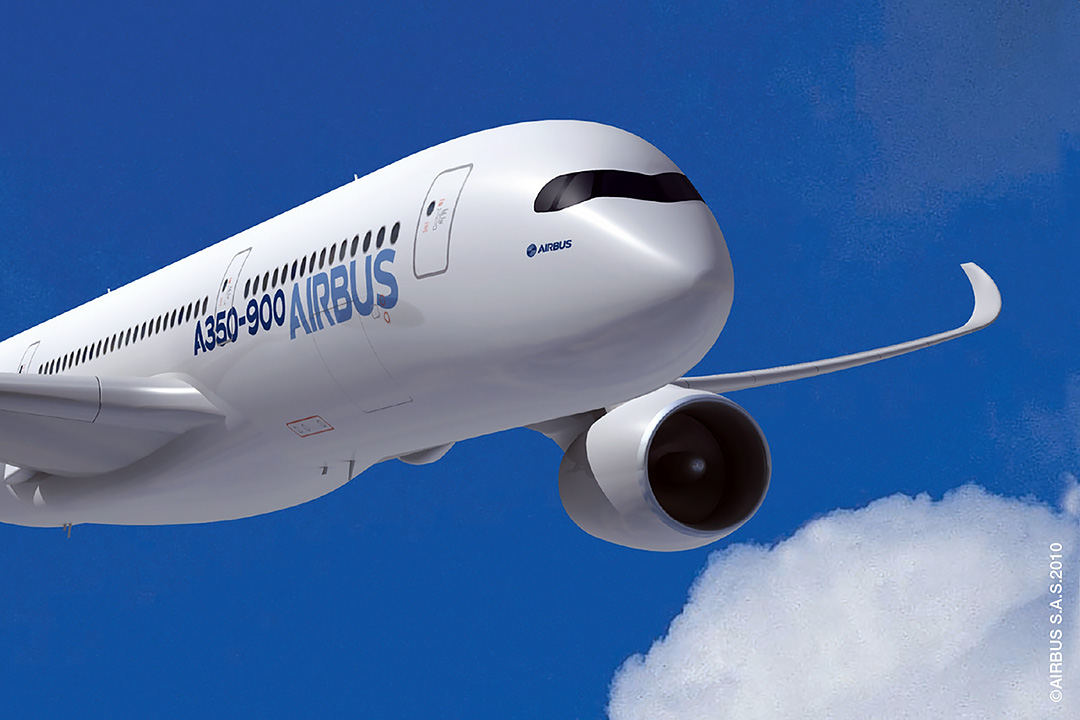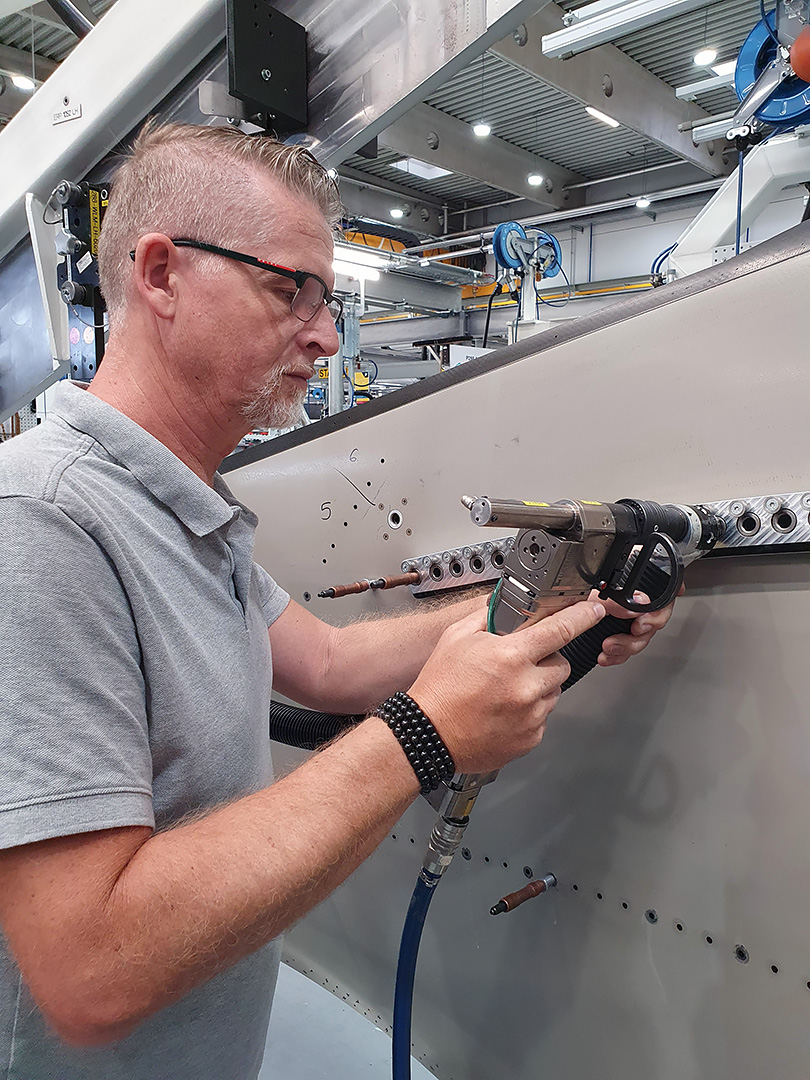Although fibre composites make aircraft lighter, they are difficult to machine. Tool supplier C6 Composite Tooling and its coating partner Oerlikon Balzers have shown how tool service life can be tripled and tool costs halved in the complex drilling process for composite components, thanks to an all-round package of tools and the CVD diamond coating BALDIA COMPOSITE DC developed for aerospace customer FACC.
Carbon fibre-reinforced plastics (CFRPs) are helping the aircraft construction industry soar to ever greater heights. Pioneers like the Airbus A350 and Boeing 787 Dreamliner have long since increased the amount of fibre composites from 30 to 50 per cent – and that figure is growing. So cost-effective machining of CFRP components is an ongoing issue which will spur on leading aerospace suppliers such as Austrian company FACC now and in the future.
The potential for this optimisation comes in part from the hundreds of thousands of holes which need to be drilled to assemble passenger jet components. Some are drilled with semi-automatic precision drill feed units, others with CNC machines or drilling robots which have the flexibility to adapt to the fuselage or other components and move using automatic programmes. To produce the holes, the tools drill through material between 11 and 25 millimetres thick with tolerances of just ten micrometres. This highly abrasive machining places extreme demands on the tools: unlike metals, CFRP composites are not homogenous and have various fibre and coating structures, which need to be drilled through with a high level of accuracy and without making the surface burst.
C6 Composite Tooling, from Buchen in Baden-Württemberg, specialise in meeting these kinds of challenges. Targeting the automotive, aerospace and rail markets, they offer all-round solutions for machining lightweight materials. For FACC they developed an optimised machining process including tools for drilling into winglets, extensions to wingtips which reduce air resistance and help minimise fuel consumption, emissions and noise.
From 80 to 250 holes
C6 were tasked with improving the existing drilling process, which used an expensive tool solution but only resulted in a tool service life of 80 holes. The breakthrough came when coating partner Oerlikon Balzers got involved. They worked with C6 to test and adapt various tool substrates, tool geometries, production conditions and process parameters to the diamond coating BALDIA COMPOSITE DC. The nanocrystalline CVD (Chemical Vapour Deposition) coating, specially designed for machining composite materials, has very high abrasive wear resistance and enables optimum process reliability and top-quality drilling.
In use, it produced outstanding results: once coated, the one-shot drill more than tripled the tool service life to 250 holes and more than halved the tool costs. “The intensive, close partnership was crucial in order to develop the optimum product composition with the substrate, pre-treatment and coating. Without the coating, we wouldn’t have produced a cost-effective drilling process”, say both Sebastian Herkert, Head of Technical Sales at C6, and Gerhard Hagedorn, Head of Diamond Customer Support at Oerlikon Balzers, of the project. And their customer confirms its success: “The tools and coatings work in all applications, whether on semi-automatic drill feed units or on CNC machines. Of course we’re delighted with the high cost-effectiveness of the drilling application, as well as the quick tool changeovers and other processing times. This helps us achieve our main targets”, explains Andreas Mayer, Automation Technology Engineer at FACC.
Figure 1

Carbon fibre-reinforced plastics (CFRPs) make aircraft such as the Airbus A350 lighter, more stable and more eco-friendly. / Image: Airbus S.A.S. 2010
Figure 2

Highly abrasive machining of composites places extreme demands on tools. The drilling solution developed by C6 and Oerlikon Balzers makes the process highly cost-effective with quicker tool changeovers and other process times than before. / Image: FACC




































